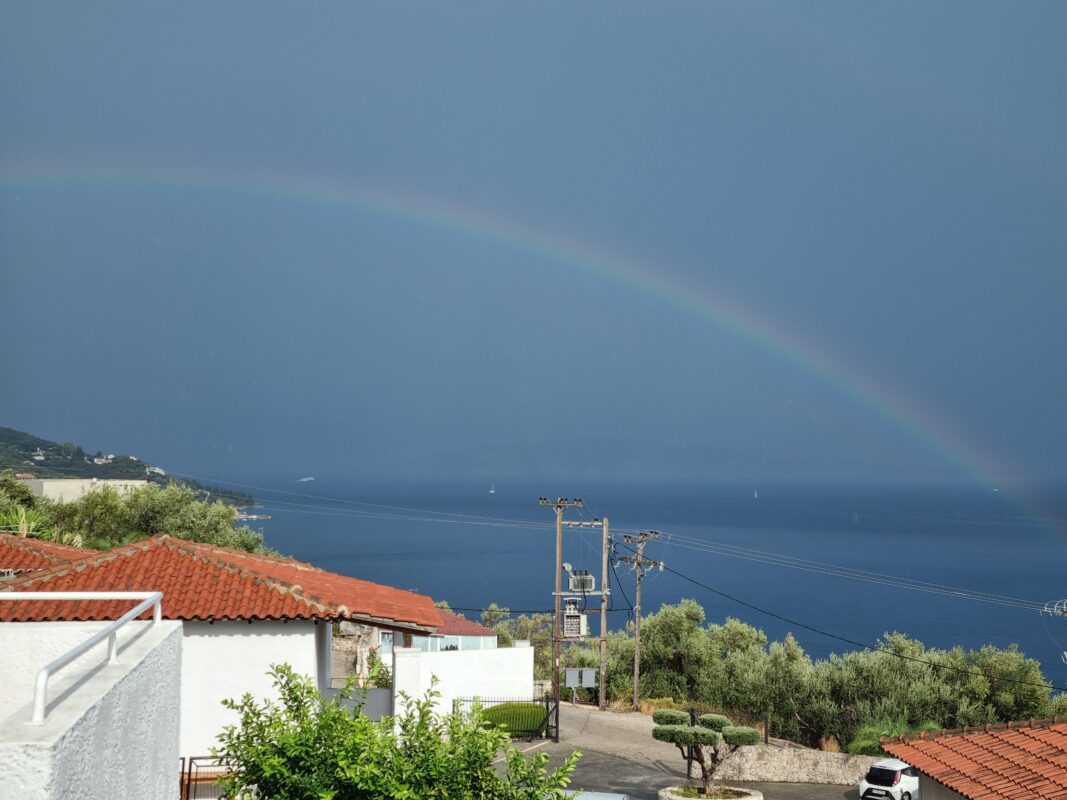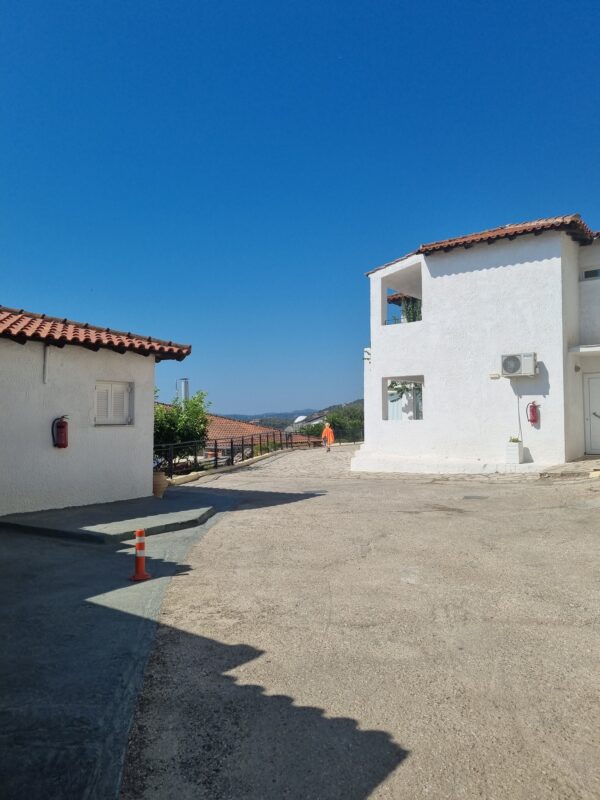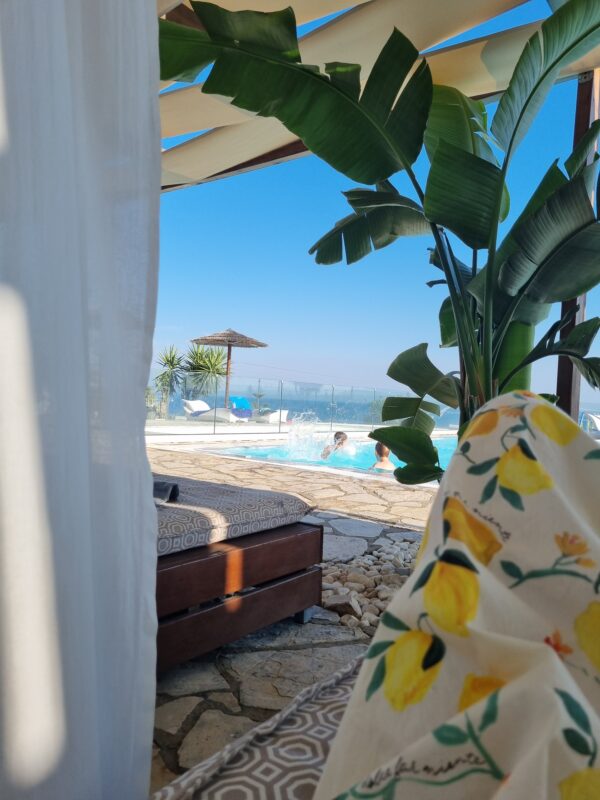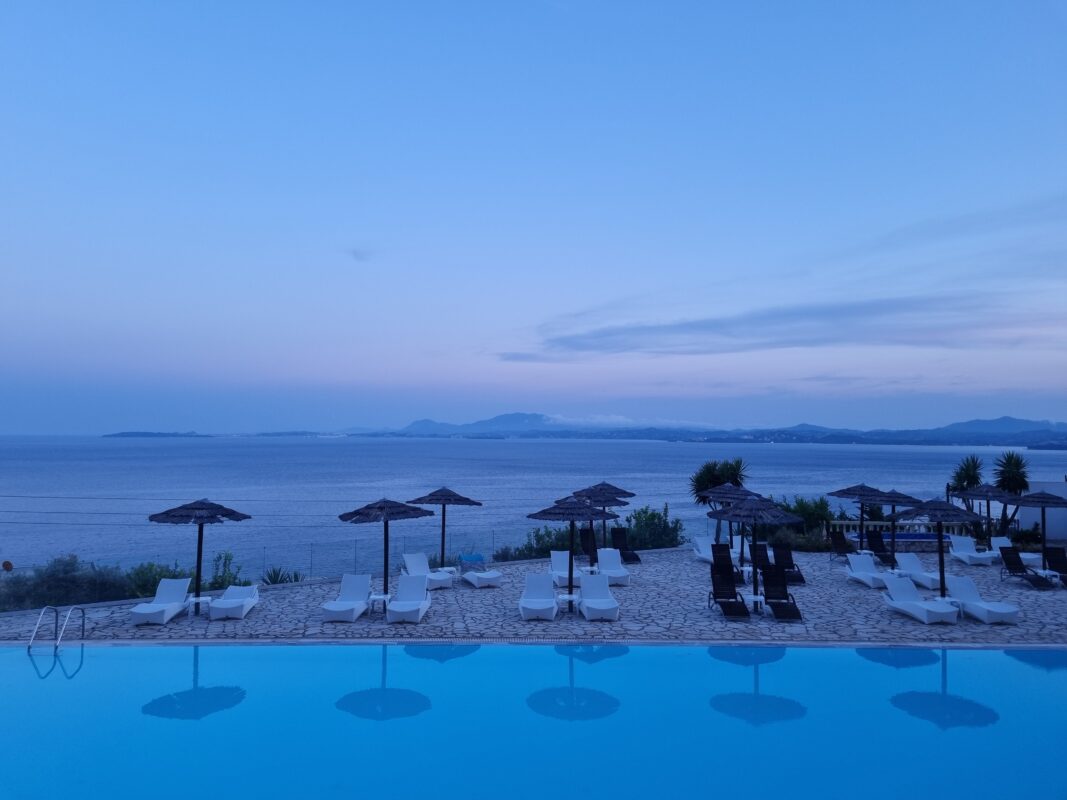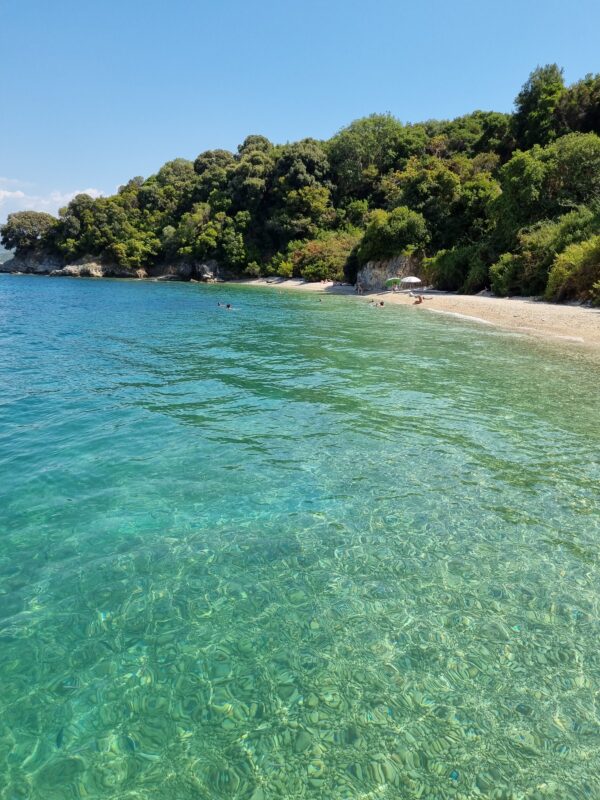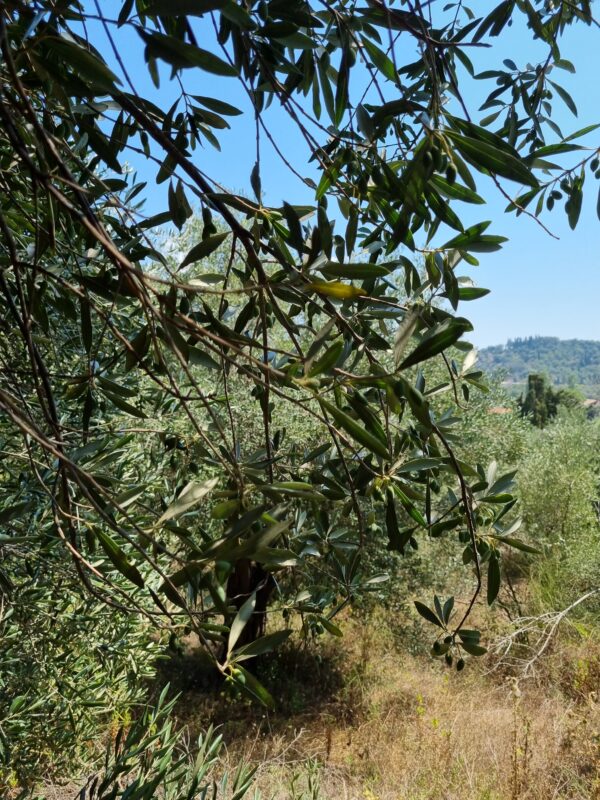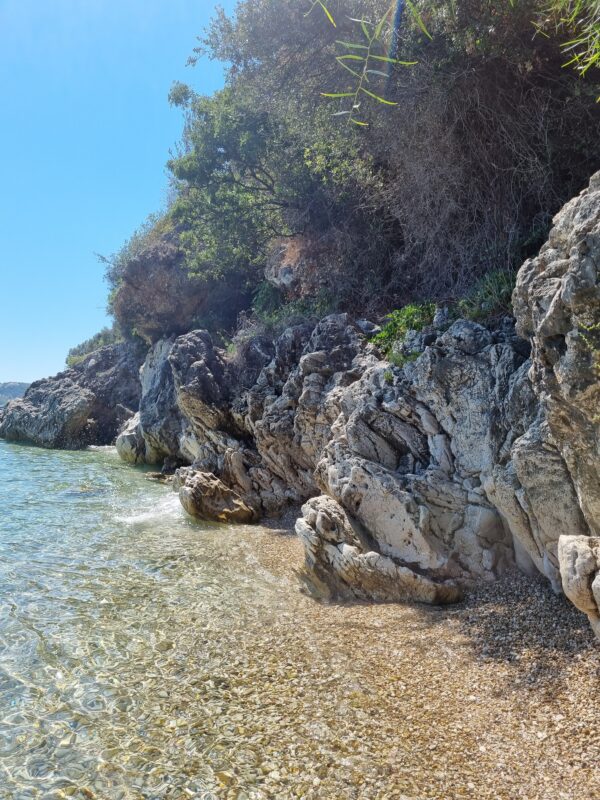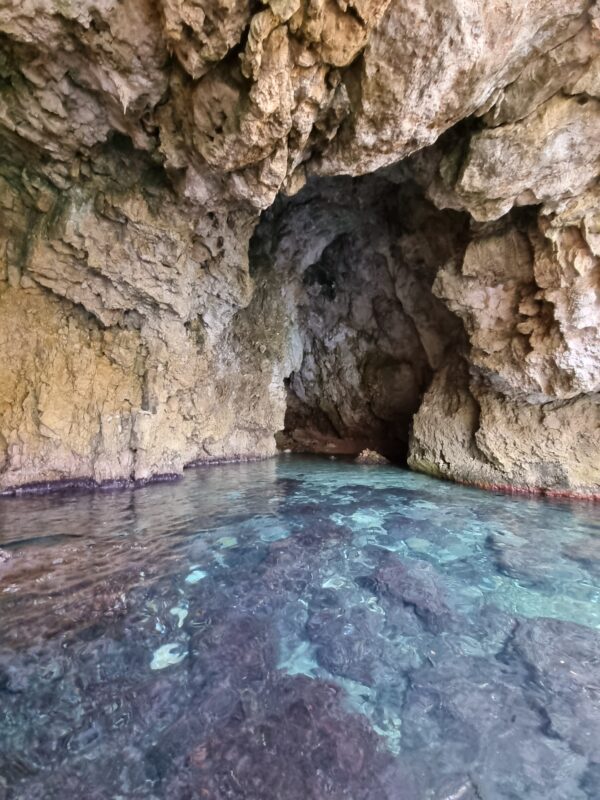The sky is blue and the sea is blue, and between the two blues there is a thin line of the darkest blue — the Corfu town, covered still in morning mist, no details visible like they are in the evening.
From my mountain of Pantokrator, I see the town right in front of me, and some part of Albania on my left, so I have a feeling that I am cosily wrapped from all sides by land, not tossed into the open sea.
In the late morning, it is already very hot and damp. I still need to figure out why — where does all this water come from that makes Corfu so green, even now in August, and still greener than some parts of Lithuania at this time of the year?
But this late morning, I walk on a white stone path between the rosemary bushes, and as I pass them, they radiate heat, moisture and rosemary fragrance, which I thought I didn’t like because it was connected to food, but which I now find I love bathing in as I walk on by to have breakfast.
In “My Family and Other Animals” – the main reason why we chose Corfu in the first place – the family is cold and freezing on the beach in England when they decide to move to Corfu.
I can recall a similar revelation moment that our family had this summer – the summer that never came – in Brussels.
It was the middle of June and we still wore scarves. It was supposed to be at least rain-free if cold, and so we decided to go for a walk in the forest. And then in the middle of our walk, the rain came, and we felt the same exasperation as the Durrells on that beach.
When we started to pack for Corfu, my kids brought their Decathlon camping lamps.
– What are these for? – I asked. – We are not camping, we are staying in a hotel.
– Yes, but this is for the evenings. To read or if we need to see something in the room in Corfu. There’s no electricity, right?
The knowledge we have about the island comes from Gerald Durrell’s My Family and Other Animals. Recently, my colleague told me about another book she read, which was not set in Corfu – predictably called The Holiday. Among the love novels, there is a special genre – the love novels set on Greek islands – and there can be particularly bad, and still I usually enjoy them and will read the one about Corfu as soon as I can get my hands on it.
But back to electricity. I knew, of course (and also told the kids) that since Durrell wrote his book, Corfu got not only electricity but many other things in terms of infrastructure and tourism (and lost in terms of wild plants and animals and remote idyllic places described in the book).
When we arrived, I learnt that although there was electricity, there were still many other things, luckily lacking – like a proper motorway or a fast road, shops near our hotel and other disadvantages of civilisation I couldn’t even hope to find missing.
Yes, there are larger towns, nightclubs, and streets filled with tourist shops. But in our family, holiday planning approach was less about research and more: “Let’s Google, which beach in Corfu has the clearest water?”
And so we have managed to poke blindly on the map into a spot at the foot of Mount Pantokrator, where the sea is so clear you can see other divers meters away, and in the evenings, the stars shine above the hotel with almost no light pollution.
On a day like this (38°), all I want is to put on the snorkelling mask and dive into the sea. The water is warm enough to spend the entire day in and cool enough to make the day pleasant.
I used to be afraid of the “blue” water – we joked with my friend that it is because we grew up near brown lakes and grey sea.
When I went to the pool, I could only swim half of it with my eyes open under water. As soon as halfway through the pool, the floor would go deeper and the water colour would change from light transparent blue to deep blue. I would start to panic, flap my arms around chaotically, breathing chaotically, exhale with my head up and eventually end up inhaling with my head under water, and would have to turn back or sideways coughing and with a chaotically beating heart.
On my first day here in Corfu, we tried snorkelling with Mark and loved it – as long as the water was shallow and light transparent blue, not deep blue. I avoided ever looking in that direction.
But then the second day came, and we came to the beach again, and as soon as I was near the sea, the urge to put on the mask came over me, as if it was more natural to be under water than above it.
It gets deep quite quickly here in Barbati. The sea floor is covered in white pebbles, and the water is turquoise.
Turquoise is called “sea colour” in Russian.
When I was little, I used to ask my mum what her favourite colour was. She would always reply:
“The colour of the sea.”
And I would always wonder why she would prefer that green-brown-gray shade of the Baltic water – the only sea I knew then.
To get to the beach – not the official Barbati beach, but our little one, surrounded by the cliffs, you have to find a little sign saying “To the sea” next to a café and walk right down very steep stairs. As you start walking those ancient steps, in the middle of the descent, you will see the sea through the olive trees growing almost vertically from the hill.
My mum was walking with Mark behind me, and when they saw the sea a couple of seconds after me, she exclaimed:
“Look, Mark, this colour is called the colour of the sea.”
I sometimes wonder how similar I am to my mother. We are very close in size and can still exchange clothes and shoes. I suppose she is much more stylish, but I am more adventurous and greedy. When my kids ask me what my favourite colour is, I give them the whole list – I like so many. But as we climb those stairs and the patch of the sea is framed in olive branches, I agree that this is probably the most perfect colour ever created or imagined.
When I put my mask on, I swim away with just a couple of strokes from the transparent light blue of the shore – it feels a little boring to me already, and I don’t have much patience for it.
I would not venture deep, not yet, not into this dark blue, holding too many secrets and – perhaps – dangers (fishes? sharks? drowning) – the streams which would carry you away until you can’t reach the shore anymore.
I would stay in my turquoise zone, my head in the water, moving so slowly, watching the fish, the pebbles, the seagrass, the cliffs under the water, immersed in the colour of the sea.

